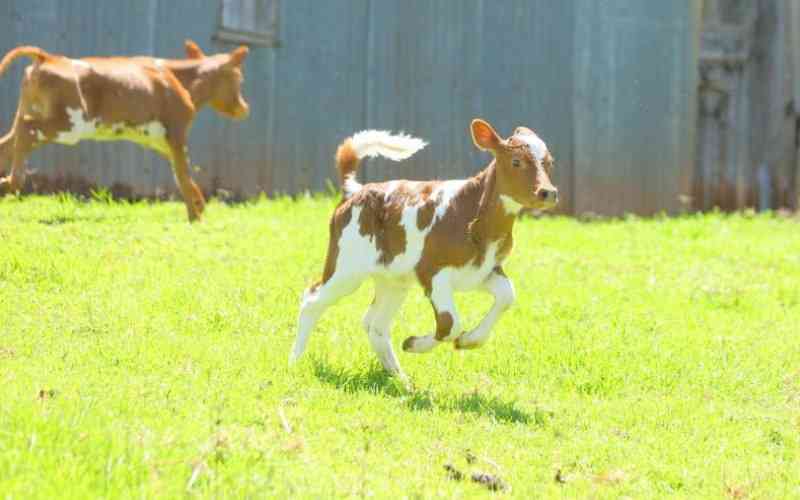×
The Standard e-Paper
Fearless, Trusted News

Calfs play at Kisii Agricultural Training Center. [Sammy Omingo, Standard]
Dear Daktari, I am a dairy farmer and I keep the local breeds but recently started keeping dairy crosses to increase milk production and income. I bought two pregnant cows which are about to deliver. I need info on taking care of calves. [Joel Mwadime, Wundanyi Taita Taveta County]